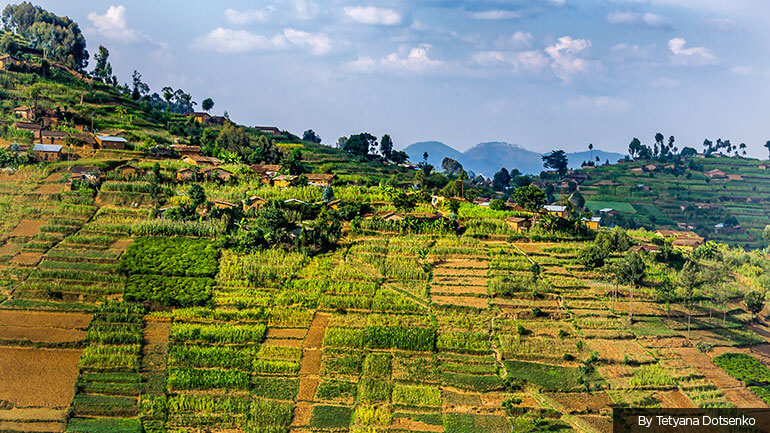
Context
Rwanda is making significant strides in sustainable development, recently achieving a landmark milestone as the first national development bank in Africa to issue sustainability-linked bonds. The Development Bank of Rwanda (BRD) launched its inaugural bond, which was recognized as the "Sustainability-linked bond of the year" at Environmental Finance’s Sustainable Debt Awards 2024. This achievement highlights Rwanda’s commitment to innovative financing solutions aimed at addressing climate change and promoting environmental conservation.
The country is actively working to scale green financing through various policy and financial instruments. With support from PROGREEN, Rwanda is implementing a National Climate Finance Strategy designed to facilitate sustainable investments across both public and private sectors, further supporting its ambitious climate objectives.
Approach
PROGREEN’s knowledge program has been critical in fostering innovative finance mechanisms and mainstreaming environmental considerations into Rwanda’s operational framework. Key initiatives include:
Technical Assistance and Co-Financing: PROGREEN, in collaboration with KfW, has provided essential technical support for the US$ 380 million Development Policy Financing aimed at boosting green finance in Rwanda. This initiative emphasizes the adoption of a National Climate Finance Strategy that aligns with the nation’s decarbonization efforts.
Wildlife Conservation Bond: The Rwanda Wildlife Conservation Bond (WCB) is a pioneering financial instrument designed to transfer project risk to capital market investors. This innovative bond, modeled after South Africa's Wildlife Conservation Bond, will fund conservation efforts, ecosystem restoration, and community benefits, linking returns to key performance indicators.
Resource Mobilization: PROGREEN's work is facilitating the mobilization of resources, engaging both public and private sectors, and promoting aligned investments from various donors including the Climate Investment Fund.
Incentive Mechanisms: The partnership focuses on identifying and designing financial incentives for improved landscape management and nature-based solutions (NBS) in the Congo-Nile Ridge landscape. This will help enhance ecosystem connectivity and reduce vulnerability to natural disasters.
PROGREEN also leads an investment program, as part of Rwanda’s Volcanoes Community Resilience Project (VCRP), which aims to reduce the risk of flooding, strengthen watershed management, and improve livelihoods of people in the project area.
Results
Rwanda’s initiatives are yielding promising outcomes, most notably:
Since 2023, the knowledge program has produced four comprehensive reports, which offer recommendations to strengthen institutional effectiveness in sustainable forest and landscape management, thereby promoting better environmental governance.
In FY24, the VCRP, supported by PROGREEN’s investment program, convened key stakeholders from various sectors to develop a strategic investment planning and coordination framework for sustainable landscape management interventions. PROGREEN is taking a programmatic investment approach in the country that allows for strategic investments to be scaled up and replicated in other contexts using funding from various sources. For example, during the year, funding of US$34 million was approved from the multilateral Climate Investment Funds—Nature, People and Climate program under the programmatic approach promoted by the project. PROGREEN’S investment program is complemented by a country knowledge program that supports improved management and sustainability in the Congo-Nile ridge landscape. In FY24, the team completed four reports containing recommendations for strengthening the effectiveness of institutions responsible for sustainable forest and landscape management. These reports have been presented to key stakeholders in the country.